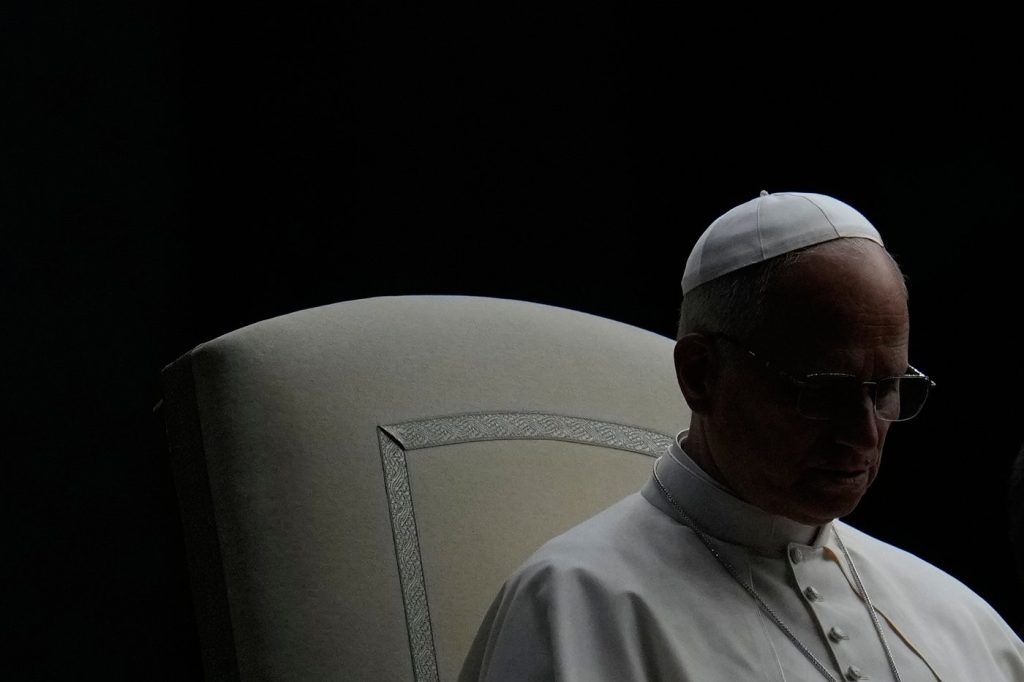World
Vatican Report Urges Financial Reparations for Abuse Survivors

The Vatican’s child protection board has released a report advocating for financial reparations and tangible sanctions for clergy sexual abuse victims. The Pontifical Commission for the Protection of Minors emphasized that the Catholic Church has a moral obligation to assist these individuals in their healing process. This second annual report highlights the vital need for monetary settlements to enable victims to access therapy and other necessary support.
Addressing the sensitive issue of reparations, the report acknowledges the complex financial, reputational, and legal implications for the Church. It stresses that the Church owes a substantial debt not only to the victims but also to the broader community and to God. The report calls for church leaders to listen to victims, offer spiritual and pastoral assistance, and publicly apologize for the harm inflicted.
“The church bears a moral and spiritual obligation to heal the deep wounds inflicted from sexual violence perpetrated, enabled, mishandled, or covered up by anyone holding a position of authority in the church,” the report states.
Pope Leo XIV’s Commitment to Addressing Abuse
The findings in the report reflect the period prior to the election of Pope Leo XIV, who has recognized the ongoing crisis surrounding sexual abuse within the Church. He has indicated that victims require more than just financial reparations for their healing. Since his election, Pope Leo has signaled a commitment to the commission, which was established by Pope Francis in 2014 to advise on best practices for preventing abuse.
Despite the commission’s initial struggles to gain traction within the Vatican, recent developments have indicated a shift. In July, Pope Leo appointed Bishop Thibault Verny as the new president, succeeding Cardinal Sean O’Malley, who had retired. This change aims to strengthen the commission’s role in addressing abuse cases more effectively.
Internal Processes and Their Impact on Victims
The report reveals that the Church’s internal handling of abuse cases often exacerbates trauma for victims. It criticizes the secretive nature of the process, which lacks tangible accountability and can be retraumatizing. The report highlights a historical pattern of mishandling cases, including abandonment and stigmatization of victims.
Victims typically have limited rights concerning their cases, receiving little information apart from the final outcome, which can take years. The report insists on the necessity for sanctions that are “tangible and commensurate with the severity of the crime.” While the most severe punishment for a priest guilty of egregious offenses may involve laicization, the Church often opts for lesser sanctions, such as temporary retreats from active ministry.
Moreover, when bishops are removed for mishandling abuse cases, the public is frequently informed only that they have retired, lacking transparency about the reasons for their departure. The report stresses the need for the Church to clearly communicate the grounds for any resignations or removals.
In addition to discussing policies, the report conducted an audit of child protection practices in various countries, assessing the responses of dioceses and religious orders. It noted positive cooperation from some regions while identifying others that failed to engage effectively.
The findings also pointed to the challenges faced by the Vatican’s missionary evangelization office, which oversees the Church’s activities in Africa and Asia. Despite having the necessary resources to manage abuse cases, the report indicates that only a small number of cases are reported to Rome, suggesting significant gaps in handling abuse in these regions.
Overall, the report underscores a pressing need for the Church to confront its past and implement meaningful changes to support victims and prevent future abuses. The recommendations outlined highlight the importance of acknowledging responsibility and taking concrete measures to ensure justice and healing for those affected.
-

 Science2 months ago
Science2 months agoToyoake City Proposes Daily Two-Hour Smartphone Use Limit
-

 Health2 months ago
Health2 months agoB.C. Review Reveals Urgent Need for Rare-Disease Drug Reforms
-

 Top Stories2 months ago
Top Stories2 months agoPedestrian Fatally Injured in Esquimalt Collision on August 14
-

 Technology2 months ago
Technology2 months agoDark Adventure Game “Bye Sweet Carole” Set for October Release
-

 World2 months ago
World2 months agoJimmy Lai’s Defense Challenges Charges Under National Security Law
-

 Technology2 months ago
Technology2 months agoKonami Revives Iconic Metal Gear Solid Delta Ahead of Release
-

 Technology2 months ago
Technology2 months agoSnapmaker U1 Color 3D Printer Redefines Speed and Sustainability
-

 Technology2 months ago
Technology2 months agoAION Folding Knife: Redefining EDC Design with Premium Materials
-

 Technology2 months ago
Technology2 months agoSolve Today’s Wordle Challenge: Hints and Answer for August 19
-

 Business2 months ago
Business2 months agoGordon Murray Automotive Unveils S1 LM and Le Mans GTR at Monterey
-

 Lifestyle2 months ago
Lifestyle2 months agoVictoria’s Pop-Up Shop Shines Light on B.C.’s Wolf Cull
-

 Technology2 months ago
Technology2 months agoApple Expands Self-Service Repair Program to Canada









